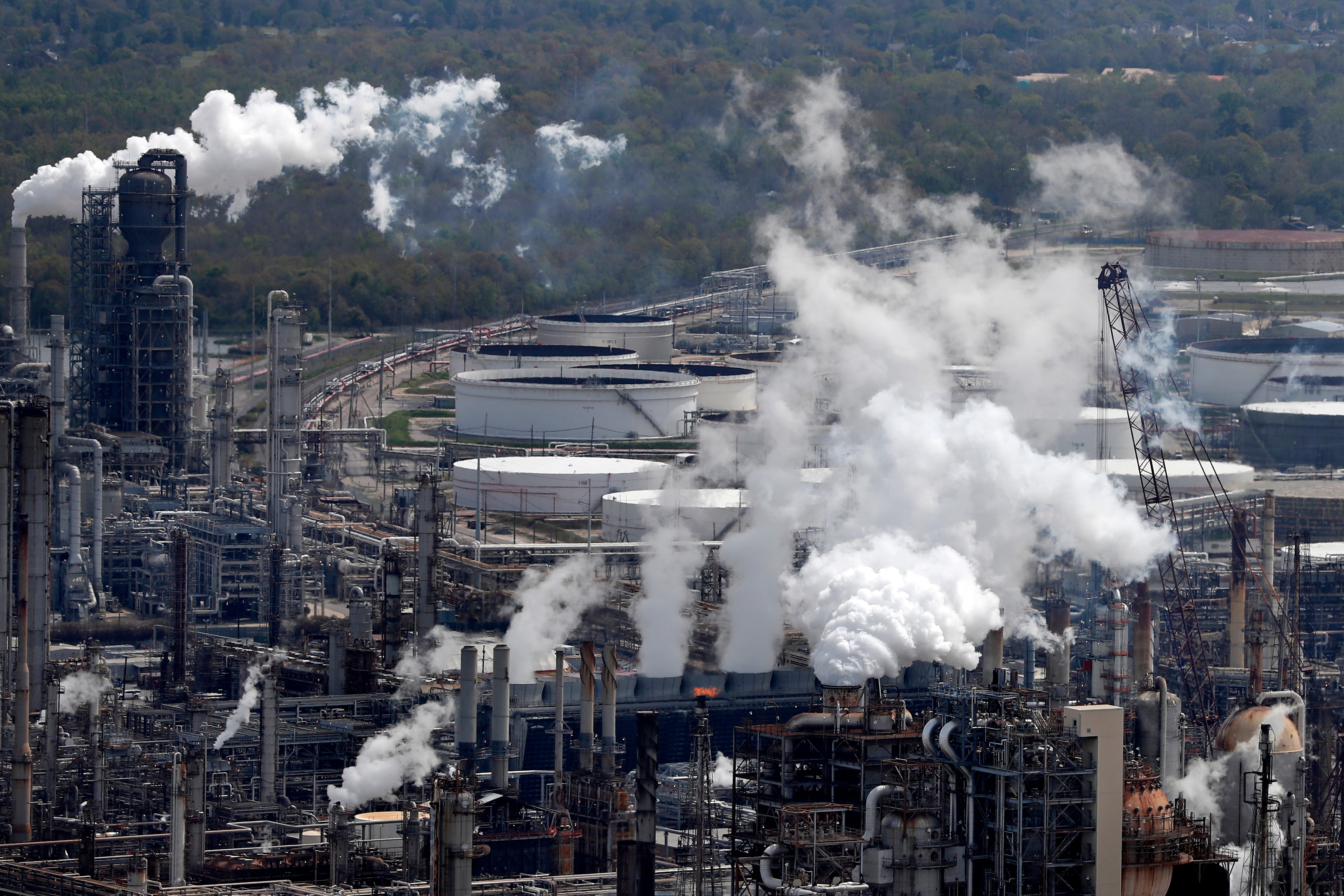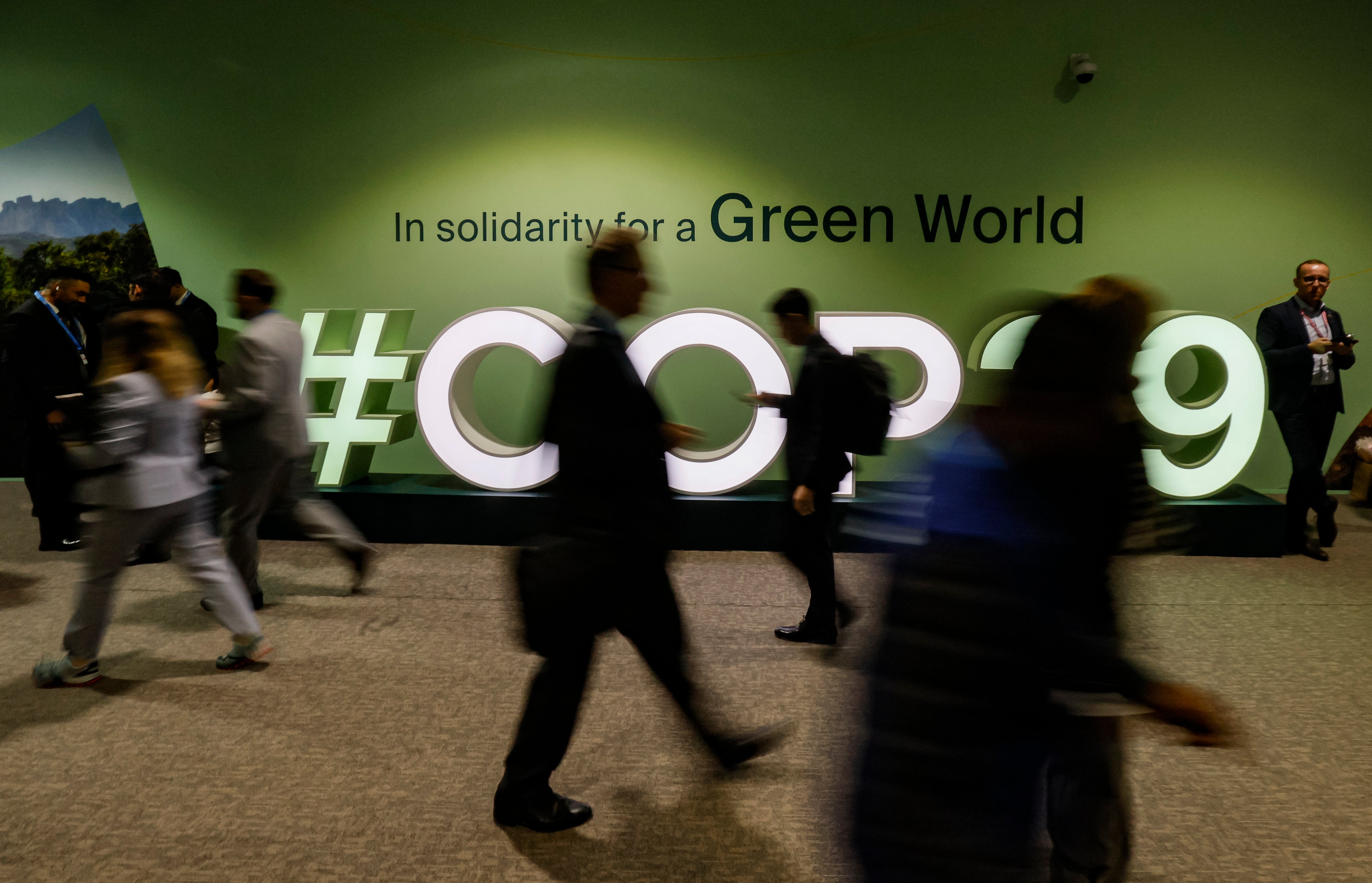
A Dutch court has overturned a landmark ruling ordering fossil fuel giant Shell to significantly cut its carbon emissions, in a blow to climate campaigners.
In the original 2021 ruling, hailed as “a monumental victory” for activists, Shell was ordered to cut its carbon emissions by 45 per cent by 2030 – compared to 2019 levels – in line with the Paris climate accords.
The legal action – brought in 2019 by seven activist groups, including Greenpeace and Friends of the Earth Netherlands – marked the first time that campaigners had sought to use the courts to force companies to curtail activities contributing to the climate crisis.
But as world leaders gather for the UN’s Cop29 climate summit, the Dutch court of appeal annulled the previous verdict, ruling that – despite Shell having a responsibility to cut emissions – it was unable to determine a fitting reduction target for oil and gas companies, based on the available science and data.
Following Tuesday’s ruling, Friends of the Earth Netherlands vowed to continue its fight against large polluters. But it did not say whether it would launch a further appeal at the Netherlands’ Supreme Court.
“This hurts,” said director Donald Pols. “At the same time, this case has shown that large polluters are not above the law.”
Shell chief executive Wael Sawan said the energy giant believed the decision was “the right one for the global energy transition, the Netherlands and our company”, adding: “Our target to become a net zero emissions energy business by 2050 remains at the heart of Shell’s strategy and is transforming our business.”

In a written summary of the ruling, the court said Shell has a duty of care to limit its emissions, but it annulled the lower court’s decision because it was “unable to establish that the social standard of care entails an obligation for Shell to reduce its CO2 emissions by 45 per cent, or some other percentage”.
“There is currently insufficient consensus in climate science on a specific reduction percentage to which an individual company like Shell should adhere,” it said.
Presiding Judge Carla Joustra said Shell already has targets for climate-warming carbon emissions that are in line with demands of Friends of the Earth – both for what it directly produces and for emissions produced by energy the company purchases from others.
The court then ruled: “For Shell to reduce CO2 emissions caused by buyers of Shell products ... by a particular percentage would be ineffective in this case. Shell could meet that obligation by ceasing to trade in the fuels it purchases from third parties. Other companies would then take over that trade.”
Judge Joustra said: “The court’s final judgment is that Friends of the Earth’s claims cannot be granted. The court therefore annuls the district court’s judgment.”

In appeal hearings earlier this year, Shell – which was headquartered in The Hague prior to completing its move to London in 2022 – said demands for companies to reduce emissions could not be made by courts, but only by states.
The court agreed with Shell that an absolute order to reduce emissions from its products could have an adverse effect worldwide, as it could lead customers to switch from using Shell’s gas to more polluting coal.
“In general, any reduction in greenhouse gas emissions is positive to mitigate climate change,” Judge Joustra said. “But that does not mean that a reduction order for Shell has that same effect.”
In common with some of its peers, Shell scaled back its renewable operations, which can take longer to generate profits compared with oil and gas. In March, Shell weakened targets for the products it sells, to a 15 per cent to 20 per cent reduction in net carbon intensity by 2030 relative to 2016, while it retired a previous target to reduce its carbon intensity by 45 per cent by 2035. The company says it plans to invest $10bn(£7.8bn) to $15bn between 2023 and 2025 in low-carbon energy.
Greenpeace UK campaigner Philip Evans called the decision a “setback for people everywhere dealing with ... climate chaos”.
But pointing to legal challenges over the North Sea oil fields of Rosebank and Jackdaw, Mr Evans added: “Around the world, the fossil fuel industry is facing a tidal wave of lawsuits and legal challenges to hold them accountable for their role in the climate crisis.
“Whether in the courts or in the streets, Greenpeace and the global climate movement will keep fighting until Shell and the rest of the industry stops drilling and starts paying for the damage they are doing to people and the planet,” he said.
Additional reporting by Reuters







